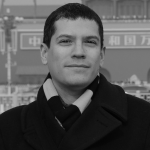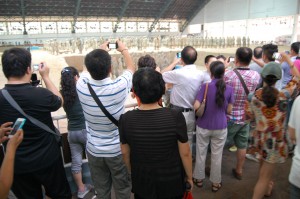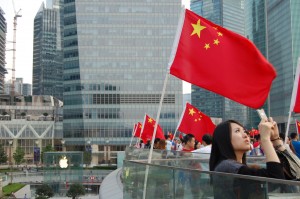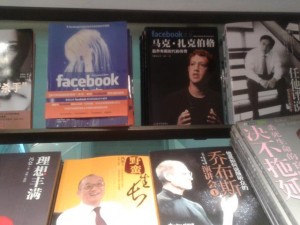
When discussing the Internet, the definitive article ”the” is employed. After all, it is the Internet, conjuring the image of a single system—albeit one made up of countless individual components. Yet the world is racing towards even higher levels of Internet usage as new countries build up their infrastructure and begin to make national sense of what is still, at its core, an American system. Competing models of the Internet are at play in the world today that allow all the economic, social and developmental benefits of the Internet wedded to a system of censorship and control. While for many Americans the idea of a filtered Internet dominating the future seems unlikely, the disquieting fact is that a tightly controlled, highly regulated and censored Internet is still a viable, workable system and an attractive model for many nations.

Differing models of Internet usage are to be expected around the world as economic, historical, social and political leanings all factor in how a nation approaches the Internet. The United States, Great Britain and Australia, with relatively long histories of freedom of speech and democratic structures, back a generally free and open Internet with widespread usage.[i] The government of Azerbaijan has deliberately constructed an image of the Internet as a dangerous space for its citizens, a place where virtue, mental well-being and safety are at risk.[ii] The result is a population reticent to use the Internet, even though access is available. North Korea stands at the other extreme, with all of the available infrastructure in place to have nationwide Internet access but a government that is unwilling to let allow its population online.[iii] The most effective competing model is the Chinese government’s version of the Internet, one that poses the greatest challenge to the prevailing paradigm of open Internet usage.

The Internet in China throttles free expression and the dissemination of information, either through outright banning or increasingly sophisticated means of filers and social control. China’s motivation to control the Internet is fairly straightforward: a desire for stability and for the security of the ruling regime. Control of the Internet allows for control of the narrative, the ability to influence public opinion, edit the past and smother dissent. Over the years China has blocked sites ranging from the Internet Movie Database and I Can Has Cheezburger to The New York Times and Bloomberg. Blog posts and news stories are edited or deleted, key terms are regularly blocked from search engines and those who cross the line like whistle blowers or activists are often arrested.[iv] The extensive and intrusive system of censoring and monitoring has been nicknamed the Great Firewall of China, giving a humorous bent to a serious concern. It is this image that most people think of when conceptualizing Internet monitoring, a vast wall meant to keep everything out, a stodgy, old fashioned and strict model of Internet behavior and usage at odds with the rest of the world. At this point, most foreign observers would come to the conclusion that the Chinese Internet is a dull and restrictive place, free of engaging discourse and as well as the pop culture detritus of selfies, cat memes and photos of food. They would also be wrong. A controlled Internet under the Chinese model does not mean an empty, barren wasteland of a half dozen government-approved sites on agriculture. It is instead vibrant, productive, used by hundreds of millions of people and (except for certain very noticeable limitations) not very different from a free and open Internet. The economic and developmental benefits of the Internet remain under a system of tight control.[v] Therein lies the subtle danger and, for some nations, the great appeal.

What happens in an online world without Facebook or Twitter, in an Internet where many of the top ten web sites in the world are blocked or censored?[vi] For such an enterprise to work, it has to provide what people want. In response to the lack of foreign services like YouTube, the Chinese government has encouraged the growth of internally developed applications. Many of the names are likely unfamiliar outside of Asia: the search engine Baidu, the Twitter-like service Weibo, the Facebook-styled RenRen and the video website Youku. The development of domestic brands serves many purposes, all which strengthen the hold of the government. Removing the option to use foreign services forces China’s massive consumer base to turn towards home-grown services.[vii] The close relationship between business and government in China profits many and allows for the protectionist creation of online businesses without competition. Chinese companies must comply with their government’s demands on censorship.[viii] The government approved web sites give the Chinese people what most people want from the Internet: entertainment, news, communication and shopping. After years of building a user base, even if Facebook is ever opened to the public, why jump ship from RenRen? Why even want Facebook if social media options, customized to a Chinese consumer, already exist? Add into the equation a keen sense of nationalism stoked periodically by the government, and the end result is a system that satisfies the needs of Internet users, built and organized according to the priorities of the central government.[ix]

China cements its hold on the Internet by becoming better and better at restricting what is said and what is seen online, often with surprising subtlety and creativity rather than simply resorting to the clumsy and heavy-handed blocking of web sites, although that is still a weapon in the arsenal of censorship. Notably, the Internet is only one arm of an apparatus that monitors and restricts outside influence. Clever social activism and online dissent is countered by equally clever people working for the government, a change from popular images of clueless bureaucrats outfoxed by tech savvy kids.[x] Censorship in China isn’t merely denying access and filtering information but creating a culture and a mentality where such activities are daily life. Acceptance of the current order in China is made more palatable by the economic benefits the ordinary Chinese citizen is receiving, which for now eclipse demands for more freedom. The Internet is still a relatively recent creation. The idea of the Internet in America is as much an outgrowth of American culture and history as it is of technology and innovations. A culture of Internet usage didn’t just materialize with the first web page. For nations that are at the start of developing their own vision of the Internet, it is a tantalizing prospect to build a mentality regarding online behavior from the beginning that mirrors their own values and culture. In a darker turn, that online culture can also mirror the desires of an authoritarian government rather than the people. The technology to effectively police the Internet exists, and is just as exportable as iPads and fighter jets. Even within Western democracies, the idea of placing limits on the Internet is still debated. For politicians worried about security in a post-Wikileaks era or are justifiably concerned over Internet crime, one just needs to look at China and see that a few restrictions will not sink the ship. From there it becomes an increasingly slippery slope.

The response of the United States has been mixed. On an international level, the United States has pushed for a free and open Internet.[xi] On a business level, though, American companies regularly deal with China, agreeing to restrictions as the cost of doing business and in some cases contributing to the development of the filtering and monitoring systems that form the backbone of the Great Firewall.[xii] Apple is deeply involved with China, as China is not only the greatest developing market for Apple devices but also the factory floor for Apple products. Google operated under filtering restrictions until it effectively withdrew from China in 2010, citing an incompatibility with its mission after years of compliance.[xiii] The withdrawal from China has effective cut the company out of the world’s biggest market, the promise of which the West has chased for centuries. In practice, the United States has let the pursuit of the China market and engagement with the Chinese government overcome any ideological distaste for censoring the Internet.
Information is the currency of the digital age. Controlling information is one of the greatest questions of the 21st century, and a divide is appearing between two potential paths. For nations searching for a way to tap into the benefits of the Internet while maintaining a particular brand of order and stability, the China model is a tempting one. The question of whether or not such a system is sustainable in the face of very human desires for expression and freedoms has yet to be answered, but for now it is grimly stable. It offers the potential of the Internet tempered by careful and effective control compared to a noisy, fractious and open American-style model.[xvii] As the world moves towards greater connectivity for all, the digital 21st century may belong more to the gatekeepers than the seekers of information.
[i] “To Each Their Own,” The Economist, accessed September 21, 2013, http://www.economist.com/news/special-report/21574634-chinas-model-controlling-Internet-being-adopted-elsewhere-each-their-own
[ii] “How Azerbaijan Demonizes the Internet To Keep Citizens Offline,” Slate, accessed September 21, 2013, http://www.slate.com/blogs/future_tense/2012/05/11/azerbaijan_eurovision_song_contest_and_keeping_activists_and_citizens_off_the_Internet_.html [Editor’s note: Page no longer available]
[iii] “North Korea Needs the Internet, So Let’s Help,” The Wall Street Journal, accessed September 23, 2013, http://blogs.wsj.com/korearealtime/2013/04/22/jasper-kim-north-korea-needs-the-Internet-so-lets-help/
[iv] “China Tightens the Screw on the Internet,” The Telegraph, accessed September 19, 2013. http://www.telegraph.co.uk/news/worldnews/asia/china/10265338/China-tightens-the-screw-on-the-Internet.html
[v] “A Giant Cage,” The Economist, accessed September 21, 2013, http://www.economist.com/news/special-report/21574628-Internet-was-expected-help-democratise-china-instead-it-has-enabled
[vii] “Why Does China Block Foreign Websites,” The Telegraph, accessed September 16, 2013. http://blogs.telegraph.co.uk/news/malcolmmoore/100070017/why-does-china-block-foreign-websites/ [Editor’s note: Page no longer available]
[viii] Ibid.
[ix] Nationalism as the genuine love of the Chinese people for their country in not the issue, it is the fact that nationalism has often been a tool of the central government to direct public opinion.
[x] Douglas Adams humorously predicted the technological race when describing the Electronic Thumb in The Hitchhiker’s Guide to the Galaxy, where half the engineers in the universe were employed making the device work while the other half were gainfully employing trying to stop it.
[xi] “The United Nations and the Internet: It’s Complicated,” Foreign Policy, accessed September 27, 2013. http://www.foreignpolicy.com/articles/2012/08/08/the_united_nations_and_the_Internet_it_s_complicated [Editor’s note: Page no longer available]
[xii] “Enabling China: We Need Clear Principles for Companies that work with Authoritarian Governments,” The New York Times, accessed September 23, 2013, http://www.nytimes.com/2011/07/25/opinion/25mon2.html?_r=0
[xiii] Ibid.
[xiv] With restrictions. The Chinese government held up the release of the 2008 World of Warcraft expansion Wrath of the Lich King until it complied with several demands as to content.
[xv] http://www.nyse.com/press/1291721618435.html
[xvi] “A Giant Cage,” The Economist.
[xvii] Iginio Gagliardone, “Is China Shaping the Internet in Africa?” The Policy and Internet Blog, accessed September 25, 2013, http://blogs.oii.ox.ac.uk/policy/is-china-shaping-the-Internet-in-africa/ [Editor’s note: Page no longer available]



